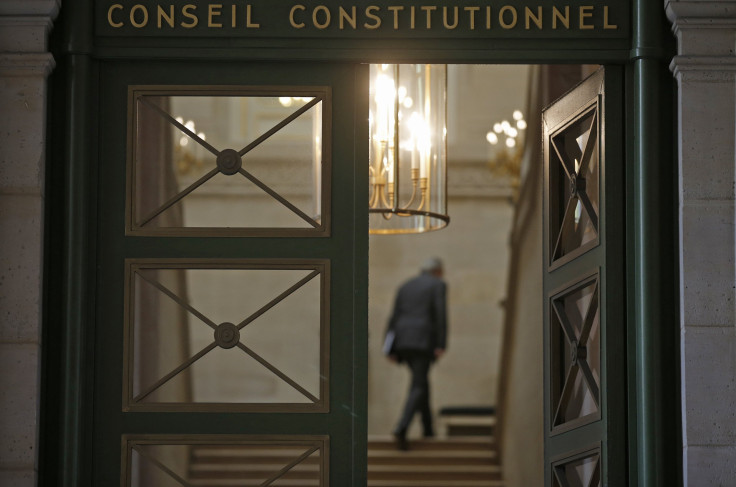French Court Rules It's Not Wrong To Revoke Citizenship Of A Convicted Binational Jihadist

The French Constitutional Council, France's top court, has ruled that revoking the citizenship of a binational who is convicted of terrorism does not contravene the law of the land. The ruling comes after Morocco's Ahmed Sahnouni, who was naturalized in 2003, challenged a 2013 order signed by Prime Minister Manuel Valls and Interior Minister Bernard Cazeneuve, that he be stripped off his French citizenship.
Sahnouni was handed out a seven year jail term in March 2013 for assisting terrorists, according to France 24, a local news agency. His lawyer claimed that the move was unconstitutional because it discriminated between French citizens and those who are naturalized. "Are there French people who are more French than others?" Nurettin Meseci, Sahnouni's lawyer, asked in court, according to Agence France-Presse (AFP), adding: "If legislators believe that the fight against terrorism involves stripping nationalities, they are wrong."
Once Sahnouni’s nationality is revoked, French authorities will have to find a legal way to deport him back to Morocco, which has in the past asked for his extradition. However, the African country, which was once France's close ally, may not repeat the request amid continuing tensions between the two countries.
“The difference in treatment (of French-born and naturalized citizens) instituted with the aim of combating terrorism does not violate the principle of equality,” the French Constitutional Council, said, according to France 24, adding: “The punishment is manifestly not disproportionate relative to the gravity of the acts.”
The move follows the deadly Paris attacks earlier this month, including the one at the office of Charlie Hebdo magazine that killed 12 people. A total of 20 people, including three attackers, died in the offensives after which the country tightened its security.
On Wednesday, Valls announced that the country is now monitoring about 3,000 people, who are believed to be linked to jihad. Valls added that the country's intelligence services are facing a “formidable” challenge as the number of people with terrorist links has increased over time.
Sahnouni was born in Casablanca in 1970 and was convicted of supervising the recruitment of jihadists to Iraq, Afghanistan, Somalia, and the Sahel region of North Africa. He was also responsible for raising funds for the jihadists and arranging coordination between volunteers on ground, according to AFP.
© Copyright IBTimes 2025. All rights reserved.






















